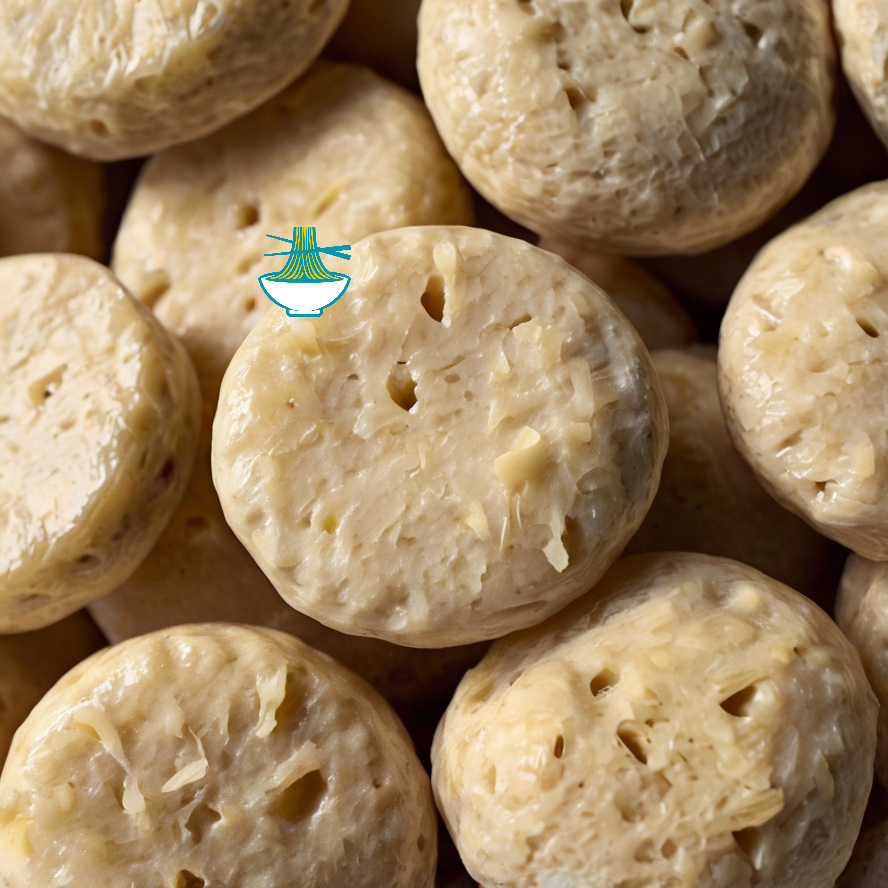Discover how to make Gbejniet, the classic Maltese cheeselets made from sheep's milk. This traditional recipe guides you through the process of creating these delicious cheeselets, whether you prefer them fresh or dried. Perfect for adding an authentic touch to your culinary repertoire!
Ingredients:
- 2 liters (about 8 cups) sheep's milk
- 1/4 cup white vinegar or lemon juice
- 1/2 teaspoon rennet (optional, for a firmer texture)
- Salt to taste
- Fresh herbs (e.g., thyme or rosemary) for flavoring (optional)
Instructions:
Heat the Milk:
- Pour the sheep's milk into a large pot. Heat gently over medium heat until it reaches about 45°C (113°F). Stir occasionally to prevent scorching.
Add Acid:
- Add the white vinegar or lemon juice to the warm milk. Stir gently for a few seconds to ensure the acid is evenly distributed.
Curd Formation:
- Allow the milk to sit undisturbed for 10-15 minutes. You should see the milk curdling, separating into curds and whey.
Drain the Curd:
- Line a colander with cheesecloth or a clean kitchen towel. Gently ladle the curds into the colander, allowing the whey to drain away. Let it drain for about 30 minutes.
Form the Cheeselets:
- Once the curds are drained, transfer them to a clean bowl. Sprinkle salt over the curds and mix gently. If using, you can also add finely chopped fresh herbs for additional flavor.
Shape the Cheeselets:
- Scoop small portions of the curds and shape them into balls or disks, about 1-2 inches in diameter. Place them on a tray lined with parchment paper.
Dry the Cheeselets:
- For fresh Gbejniet, allow them to rest for a few hours before serving. For dried Gbejniet, let them air-dry in a cool, dry place for about 2-3 days, turning them occasionally to ensure even drying.
Serve and Enjoy:
- Fresh Gbejniet can be enjoyed immediately, while dried Gbejniet can be crumbled over salads or enjoyed as a snack. Store any leftover dried cheeselets in an airtight container.
This traditional Maltese recipe for Gbejniet provides a delightful cheese experience that's perfect for any occasion.
Nutritional Values:
Sheep's Milk:
- Calories: 150-170
- Protein: 8-9 grams
- Fat: 8-9 grams
- Carbohydrates: 11 grams
- Calcium: 300 mg (approximately 30% of the daily value)
- Vitamin A: 10% of the daily value
- Vitamin D: 10% of the daily value
Benefits:
- Rich in Protein: Supports muscle growth and repair.
- High Calcium Content: Essential for bone health and strength.
- Good Source of Vitamins: Provides Vitamin A for vision and skin health and Vitamin D for calcium absorption.
- Easier to Digest: Some people find sheep's milk easier to digest than cow's milk due to its smaller fat globules and different protein structure.
White Vinegar or Lemon Juice:
- Calories: 0-3
- Protein: 0 grams
- Fat: 0 grams
- Carbohydrates: 0-1 gram
Benefits:
- Acidic Properties: Helps in curdling the milk to form cheese curds.
- Vitamin C (Lemon Juice): Provides antioxidant benefits, supports immune function, and promotes healthy skin.
Rennet (Optional):
- Varies based on the product, generally negligible calories and nutrients.
Benefits:
- Firmer Texture: Helps create a firmer texture in cheese by aiding the coagulation of milk proteins.
Salt:
- Sodium: 2,300 mg (100% of the daily value)
- Calories: 0
Benefits:
- Flavor Enhancer: Improves the taste of the cheeselets.
- Preservation: Helps in preserving the cheese by reducing moisture content and inhibiting microbial growth.
Fresh Herbs (Optional):
- Generally low in calories and high in antioxidants, vitamins, and minerals.
Benefits:
- Antioxidants: Helps combat oxidative stress.
- Vitamins and Minerals: Provides essential nutrients such as Vitamin K, Vitamin C, and folate, contributing to overall health and well-being.


Comments